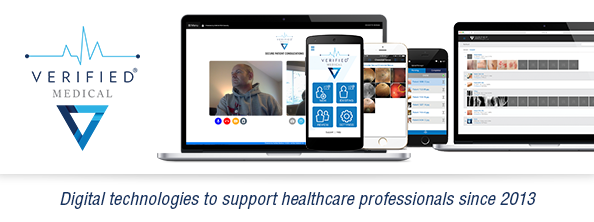

 |
Worldwide, we are all striving to provide secure patient consultations and facing the same challengesThe worldwide impact of COVID-19 has yet to see full propagation and healthcare practitioners face a vast array of questions about how to conduct business and provide service to patients while minimizing physical interaction. COVID-19 was a turning point for the medical profession, previously practitioners had the option to adopt technology as part of their practice, with little mandate coming from Colleges or Federally. Early adopters are familiar with digital consults, using technology as part of their daily workflow and capturing data from smart devices directly into the patient chart. The world changed with the onset of the COVID-19 pandemic, forcing businesses to close, social distancing became the norm and healthcare practitioners forced to look at alternatives to the traditional consultation. Many software companies jumped on the task of building out existing offerings for video telecommunications and EMR's leapt into marketing strength pushing to be first to market with their mobile-ready EMR platforms. It also gave an opportunity for other companies such as Verified Medical, with a digital capture and collaboration platform that has been in circulation since 2013. The ability for digital providers to server the healthcare community was obvious - technologists realized the power of their platforms and the niche in which they were able to be offered. Some platforms (and popular at that) fell foul of data protection and privacy regulation, creating an element of distrust in the marketplace, and potentially hurting their ability to grow. PHIPA, PIPEDA, HIPAA and the GDPRWhen it comes to data protection and privacy acronyms rule. Here are some of the ones you need to know and should ensure your telehealth platform adheres to: |
Where do we fit?Telehealth software vendors have an obligation to protect the information that flows in and through electronic data systems they manage. Adherence to the rules in each jurisdiction is important from a vendor perspective and also for their clients, who use telehealth platforms with a degree of understanding that the vendor is working to protect the information they input and use. Verified Medical holds data security and privacy at the very forefront of what they do, end-to-end encryption, encrypted servers, PIPEDA and HIPAA compliance are daily language for company and customers. COVID-19 presented an opportunity for Verified Medical to adapt a module developed for internal use to health care customers, adapting their video conferencing and chat platform to provide a telehealth module that would easily integrate into the Verified Medical platform. Taking our existing technology and making it customer-facing seemed an obvious next step for us. We have always been at the forefront of security and privacy with the Verified Medical platform and made sense to make this technology available to our healthcare clients. drCalls.me is the telehealth video conferencing module for Verified Medical. Available free of charge to healthcare practitioners, college and associations whether they are Verified Medical customers of not. |
Interesting ArticlesBritish Medical Journal Information and Privacy Commissioner, Ontario Office of the Privacy Commissioner of Canada Health Information Privacy, US Dept. of Health and Human Services Horizon 2020 Framework Programme of the European Union |
For more information, please visit the website drCalls.me |
 |